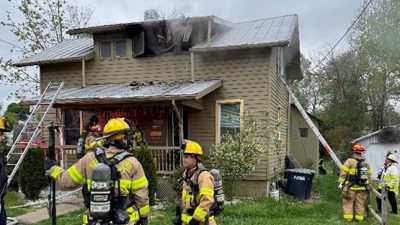Story by Chris Graham
[email protected]
Cathy Campbell wants to learn more about how African-Americans in rural Virginia facing tough end-of-life decisions go about making those decisions – so she’s been hitting the road a lot lately to ask folks to share their wisdom.
“We are finding with most people that we’ve already interviewed that it’s really a conversation with me – at their home, around the kitchen table or on the porch, really talking with them about their journey. People have really enjoyed the opportunity to be able to contribute to the lives of other people and really feel honored that we’re seeking out their wisdom,” said Campbell, an assistant professor in the University of Virginia School of Nursing, who is leading an ongoing study into end-of-life decisions among rural African-Americans and their families.
“I know from my own clinical practice that African-American families have some unique challenges making decisions for end-of-life care – certainly around the cancer issue. So what I want to do is to talk with families who are going through this decision to find out a couple of things – one, what are some of the challenges that they’re having, and two, what are some of the factors that are leading them to make certain end-of-life decisions?” Campbell said in an interview for this week’s “Augusta Free Press Show.”
“There are a lot of choices – and also it’s a very emotional time,” Campbell said. “Certainly making decisions for yourself, you are not only concerned for yourself, but for your family – and family members are concerned that they are making the right decision. I know for many African-American families, they hold life very sacred, they hold life very precious, and they want to be able to make care decisions that allow them to be able to extend life, to be able to take advantage of the advances in medical care that are available.
“But on the other hand, there are other families who really may not want such a high-tech death experience – they want to be able to be cared for in their home, they want to stay in their community, they don’t want to go to a major teaching hospital for their care,” Campbell said.
One of the goals for the study, Campbell said, “is to be able to develop some support mechanisms for families – to help them be able to sit down with their doctor or with their nurse to look at some of the pros and the cons of these decisions, give them opportunities to talk about some of the things that they value, and that are important to them. And just to be able to have the family to have a way that they are supported through the decision – if it’s a decision to stay in the hospital, that they feel good about that decision; and if it’s a decision to stay at home, that they know where in the community to find services. And they also feel good about that decision as well.”
Details
If you are an African American man or woman 55 years of age or older who has been diagnosed with cancer as a life limiting illness (Stage 3 or 4), you may be eligible to participate in the study.
For more information, contact Cathy Campbell toll-free at the Rural Health Care Research Center at 1.866.807.2816 or [email protected] or contact Tamara Orr, PhD, RN, at Virginia Commonwealth University at 804.628.4677 or [email protected].
Participants will be paid $30 to provide as many as two one-hour interviews.
Chris Graham is the executive editor of The Augusta Free Press.










